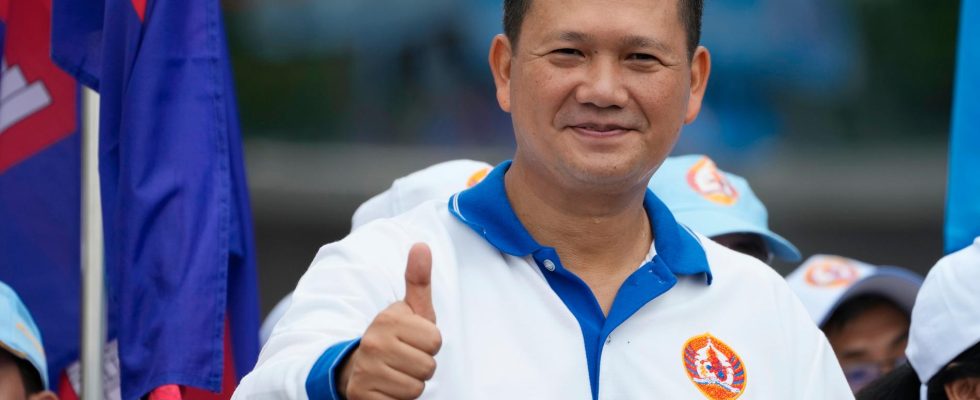Cambodia’s longtime Prime Minister Hun Sen has formally handed over power to his son.
Hun Manet, who served as the country’s army chief, was appointed prime minister by King Norodom Sihamoni on Monday, writes AFP.
His father, a former Khmer Rouge cadet, has been the longest-serving leader in Asia after 38 years in power. However, Hun Sen has made it clear that he will continue to have a large influence over politics.
Before the 45-year-old son is sworn in as leader, a formal vote awaits in parliament, where the ruling party holds 120 out of 125 seats.
The July election, which was won by Hun Sen’s ruling party, has been heavily contested in the outside world since the opposition party was banned from participating.
The EU, the USA and other Western countries refused to send election observers, because they believe that the election lacked the conditions to be classified as free and fair.
Hun Sen has used the legal system to crush all opposition to his rule, human rights organizations believe. This applies to everything from belligerent trade union leaders to critical activists and politicians.
FACT Background: Cambodia’s political system
Cambodia is formally a democracy, but is characterized by an authoritarian government. Corruption in the country is also widespread. Regular elections are held but the democratic shortcomings are great and the country is completely dominated by the ruling party CPP.
On paper, the constitution and other laws guarantee citizens both democracy and respect for human rights. However, it is far from always that the CPP government and the state apparatus apply the country’s laws. Those in power often use the politically controlled legal system to silence critics. This is done, among other things, by convicting them of slander, treason or other crimes.
Source: Landguiden/UI.
Read more
